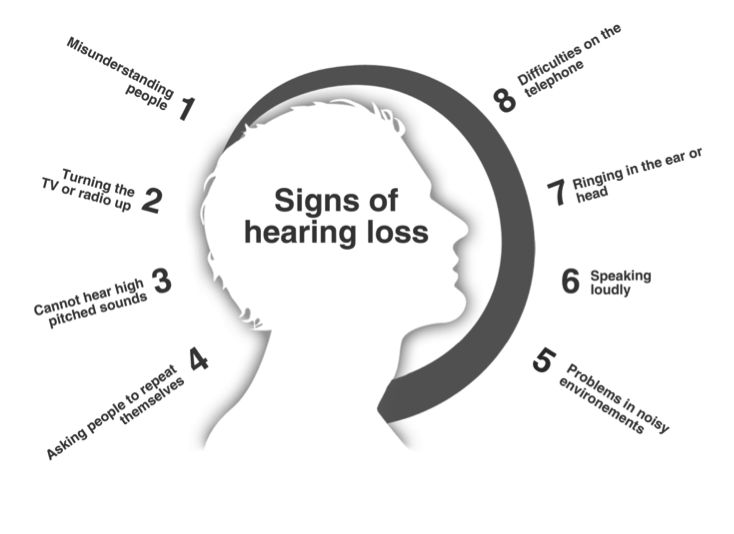Hearing Loss
Every day you are exposed to a world of sounds, from the sounds of nature and everyday conversation to your favourite music and television programs. It is through hearing that you connect with the people around you and get an awareness of your surroundings.
A common problem
Hearing loss is a very common disability that affects one in every six Australians. However, thanks to modern technology and medical science, it is now the world's most manageable disability.
Signs of hearing loss
In most cases, hearing loss is a gradual process that develops over time. This can make it difficult to immediately recognise the symptoms. If you have noticed three or more of the symptoms listed below it is worth speaking to an audiologist.

Effects of hearing loss
People respond to hearing loss in many different ways. Some suffer from a loss in concentration while others become anxious, frustrated or embarrassed. This can place strain on them as well as on the people around them.
Communication difficulties
The most obvious consequence is the inability to communicate freely. Conversations become shorter, telephone use is difficult and communication issues arise with family, friends and co-workers.
Auditory Deprivation
Auditory deprivation may result in one’s brain partially losing the ability to interpret words. This happens when there has been a lack of stimulation for an extended period. If a person does not get their hearing loss treated, auditory deprivation can cause a loss of cognitive function that is impossible to reverse.
Help is available
Despite the significant technological advancements of recent years, only one in every 10 hearing impaired people seeks assistance. This is sometimes due to misinformation about their condition or what options are available.
There is a great range of treatments, services and technologies available to assist those with hearing loss. Hearing aids are just one small part of hearing rehabilitation and not a definitive remedy on their own.
